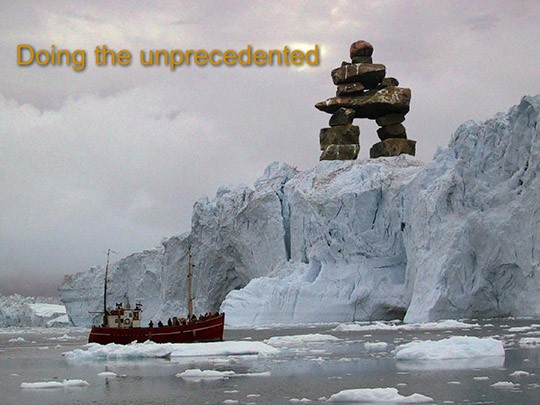Word-Of-the-Week #834: Connection
July 30, 2020 by Susan Clarke · Comments Off on Word-Of-the-Week #834: Connection
Connection – the act of creating a relationship.
When was the last time you had a meaningful conversation with someone in person? How much time each month do you spend helping others? Do you realize how important relationships are in adding to your overall happiness?
Here are more excerpts on “The Habits Of Supremely Happy People” from The Huffington Post.
Martin Seligman, the father of positive psychology, theorizes that while 60 percent of happiness is determined by our genetics and environment, the remaining 40 percent is up to us. And he says happy people have habits you can introduce into your everyday life that may add to the bigger picture of bliss.
- They devote some of their time to giving.
Even though there are only 24 hours in a day, positive people fill some of that time doing good for others, which in return, does some good for the do-gooders themselves. A long-term research project called Americans’ Changing Lives found a bevy of benefits associated with altruism: “Volunteer work was good for both mental and physical health. People of all ages who volunteered were happier and experienced better physical health and less depression,” reported Peggy Thoits, the leader of one of the studies.
Givers also experience what researchers call “the helper’s high,” a euphoric state experienced by those engaged in charitable acts. “This is probably a literal “high,” similar to a drug-induced high,” writes Christine L. Carter, Ph.D. “The act of making a financial donation triggers the reward center in our brains that is responsible for dopamine-mediated euphoria.”
- They nix the small talk for deeper conversation.
Nothing wrong with shootin’ the you-know-what every now and then, but sitting down to talk about what makes you tick is a prime practice for feeling good about life. A study published in Psychological Science found that those who take part in more substantive conversation and less trivial chit chat experienced more feelings of satisfaction.
“I wish I’d had the courage to express my feelings,” is one of the top five regrets of the dying — a sentiment that hints at the fact that people wish they’d spent less time talking about the weather and more time delving into what it is that makes their heart swell.
- They make a point to listen.
“When you listen you open up your ability to take in more knowledge versus blocking the world with your words or your distracting thoughts,” writes David Mezzapelle, author of Contagious Optimism. “You are also demonstrating confidence and respect for others. Knowledge and confidence is proof that you are secure and positive with yourself thus radiating positive energy.” Good listening is a skill that strengthens relationships and leads to more satisfying experiences. A good listener may walk away from a conversation feeling as if their presence served a purpose, an experience that is closely connected with increased well-being.
- They uphold in-person connections.
It’s quick and convenient to text, FaceTime and tweet at your buddies. But spending the money on a flight to see your favorite person across the country has weight when it comes to your well-being. “There’s a deep need to have a sense of belonging that comes with having personal interactions with friends,” says John Cacioppo, Ph.D., the director of the Center of Cognitive and Social Neuroscience at the University of Chicago. Social media, while it keeps us in touch, doesn’t allow us to physically touch, which harvests the warm-and-fuzzies and even decreases feelings of anxiety.
This week’s focus is on connection. How open and receptive are you to listening to those around you? When was the last time you connected with a special friend? How often do you express your deepest true feelings?
I LOVE feedback! Join my Facebook community on my FUN-damentals Fan Page.
Word-Of-the-Week #833: Exuberance
July 23, 2020 by Susan Clarke · Comments Off on Word-Of-the-Week #833: Exuberance
Exuberance – joyful enthusiasm!
This week I am taking a vacation day 😊 And the word that came to mind for me to rerun was exuberance. I LOVE the feeling of “joyful enthusiasm.” And my goal is to live each day of my life with as much exuberance that is possible. (Even in this very trying time!)
How would you rate your “exuberance factor” on a scale of 1 to 10? How often do you feel joyful enthusiasm?
So how do you get and keep exuberance? I did a little research and found “The Habits Of Supremely Happy People” from The Huffington Post.
“Martin Seligman, the father of positive psychology, theorizes that while 60 percent of happiness is determined by our genetics and environment, the remaining 40 percent is up to us.
In his 2004 Ted Talk, Seligman describes three different kinds of happy lives: The pleasant life, in which you fill your life with as many pleasures as you can, the life of engagement, where you find a life in your work, parenting, love and leisure and the meaningful life, which “consists of knowing what your highest strengths are, and using them to belong to and in the service of something larger than you are.”
After exploring what accounts for ultimate satisfaction, Seligman says he was surprised. The pursuit of pleasure, research determined, has hardly any contribution to a lasting fulfillment. Instead,  pleasure is “the whipped cream and the cherry” that adds a certain sweetness to satisfactory lives founded by the simultaneous pursuit of meaning and engagement.
pleasure is “the whipped cream and the cherry” that adds a certain sweetness to satisfactory lives founded by the simultaneous pursuit of meaning and engagement.
And while it might sound like a big feat to tackle great concepts like meaning and engagement (pleasure sounded much more doable), happy people have habits you can introduce into your everyday life that may add to the bigger picture of bliss. Joyful folk have certain inclinations that add to their pursuit of meaning — and motivate them along the way.
- They surround themselves with other happy people.
Joy is contagious. Researchers of the Framingham Heart Study who investigated the spread of happiness over 20 years found that those who are surrounded by happy people “are more likely to become happy in the future.” This is reason enough to dump the Debbie Downers and spend more time with uplifting people.
- They smile when they mean it.
Even if you’re not feeling so chipper, cultivating a happy thought — and then smiling about it — could up your happiness levels and make you more productive, according to a study published in the Academy of Management Journal. It’s important to be genuine with your grin: The study revealed that faking a smile while experiencing negative emotions could actually worsen your mood.
- They cultivate resilience.
According to psychologist Peter Kramer, resilience, not happiness, is the opposite of depression: Happy people know how to bounce back from failure. Resilience is like a padding for the inevitable hardship human beings are bound to face. As the Japanese proverb goes, “Fall seven times and stand up eight.”
- They try to be happy.
Yep — it’s as simple as it sounds: just trying to be happy can boost your emotional well-being, according to two studies recently published in The Journal of Positive Psychology. Those who actively tried to feel happier in the studies reported the highest level of positive moods, making a case for thinking yourself happy.”
This week is all about having exuberance. Do you surround yourself with happy people? How often do you smile? How good are you at bouncing back from a failure? Do you actively try to feel happy?
Stay tuned! I will follow up next week with more habits of exuberant human beings.
I LOVE feedback! Join my Facebook community on my FUN-damentals Fan Page.
Word-Of-the-Week #832: Unprecedented & WOW 16th Anniversary!
July 16, 2020 by Susan Clarke · Comments Off on Word-Of-the-Week #832: Unprecedented & WOW 16th Anniversary!
Unprecedented – never before known or experienced.
This week I am celebrating the 16th anniversary of my WOW – Word-Of-the-Week! Time really does fly by. And sharing thoughts from longtime friend and fellow speaker Sam Horn of the Intrigue Agency regarding these unprecedented times.
Can You Believe This Year is Half Over?
“Charles Bukowski said, “Time races by like wild horses over the hills.” Does it seem like time is racing by – or does it feel like it is standing still and you’re just waiting for these times of Covid19 to be behind us?
When sheltered-in-place, it’s easy for days to look the same. But they’re not the same. As the Buddha said, “Each morning, we are born again.”
Life is much too precious to take for granted. One way to make the most of our days is to “Socrates” them – to examine, imprint, and appreciate the highlights and lessons learned.
These questions can help you do that. We featured them in our SOMEDAY book club because a participant said in disbelief, “Can you believe 2020 is already half over?!”
Exactly. You might want to print out these questions and talk through them with a friend or family member – in person or virtually. It can make for a meaningful conversation – and help you focus on what’s been right about the first half of this year.
Review of the First Half of 2020:
1. What is a favorite place I discovered, explored, or spent time in? What made it special?
2. Who is someone who really impacted me? What did they do or say that made a difference?
3. How did I change – for better or for worse? What beliefs or behaviors did I adopt – or abandon?
4. What’s a meaningful achievement or skill I learned that I’m proud of?
5. What happened that was unplanned, unexpected, or surprising? How did it affect me?
6. What will I remember about my health from the past six months – and why?
7. What was my biggest challenge? What did I learn about myself – and others – as a result of it?
8. What did I NOT find time for – that I wish I had?
9. What is the best book I read? What is the most interesting movie or TV program I watched? What made it special? Why did it resonate with me?
10. What experience and/or person am I most grateful for? Why?”
Copyright © 2020 Sam Horn, All rights reserved.
This week’s focus is about dealing with these unprecedented times. Have you learned any lessons from all of this? Have you had any meaningful conversations with friends or family about what has been right about the first half of this year?
I LOVE feedback! Join my Facebook community on my FUN-damentals Fan Page.
Word-Of-the-Week #831: Act
July 9, 2020 by Susan Clarke · Comments Off on Word-Of-the-Week #831: Act
Act – the process of doing something.
How long does it take you to decide to act on something? Do you ever spend time worrying about a decision you’ve made?
Once again, Steve Strauss, author of STEVE’S 3-MINUTE COACHING, sent a very thought provoking piece!
Quote: Act
(Quotes are capsules of information, reinforcement or enlightenment.)
“The most difficult thing is the decision to act. The rest is merely tenacity.”
“…decide…whether or not the goal is worth the risks involved. If it is, stop worrying….”
“Worry retards reaction and makes clear-cut decisions impossible.”
“Courage is the price that life exacts for granting peace, the soul that knows it not, knows no release from little things.”
“Never interrupt someone doing something you said couldn’t be done.”
“Adventure is worthwhile in itself.”
All these quotes are by Amelia Earhart, adventurer
Coaching Point: What’s your adventure?
See all past issues and subscribe here Steve’s 3-Minute Coaching
Copyright © 2020 Steve Straus, All rights reserved.
This week’s focus is to act. How quick are you when it comes to making a decision? How would it feel to act and experience it as an adventure?
I LOVE feedback! Join my Facebook community on my FUN-damentals Fan Page.
Word-Of-the-Week #830: Thank You
July 2, 2020 by Susan Clarke · Comments Off on Word-Of-the-Week #830: Thank You
Thank You – a conversational expression of gratitude; an acknowledgment of appreciation.
When was the last time someone said Thank You to you? When was the last time you sent a Thank You to your family, customers, guests, members or clients? Have you noticed more people saying thank you since the pandemic?
This week features UT columnist Neil Senturia “Thank you. So rare in business but so important.”
“I have been binging on the Netflix series “Ozark.” I have finished seasons one and two and am now halfway through season three when a moment in episode five flattens me. I have related this moment to a number of my peers who have had a similar response. So, at the risk of spoiling a tiny portion of the show, herewith.
The main character, Marty Byrde, works for a cartel drug lord. He is kidnapped by the drug lord, tortured and finally as a way of achieving his freedom, he pulls off a financial magic trick that only he can do, the result of which is worth millions of dollars to the cartel. There is this marvelous moment as he is about to be set free, when the drug lord asks him “What do you want?” Marty makes a simple request about having more authority in his work. Then the drug lord asks, “Is that all you want?”
And then it happens. There is a very long pause as they stare at each other. And finally, Marty looks at his captor and says, “A thank you.” What Marty wanted was what all of us want — recognition for a solid and successful effort. He wanted this powerful man to say thank you, to humble himself and acknowledge that he was a tiny bit beholden to Marty, that he was grateful for his skill. I won’t tell you the next moment, but what I will tell you is that I have shared this story enough times to know that getting a thank you is often very difficult, and sometimes impossible. And it really matters.
It is often easier to write a check, to give a bonus or offer more stock and a promotion, but to say thank you, well, that seems at times and from certain people to stretch the bounds of human interaction. In my own little world, from time to time, I have pulled off modest magic tricks, not the stuff of Penn & Teller mind you, but valuable enough to save some companies and some people. And what I wanted most was to be thanked.
I have polled other advisers and leaders and it appears that a thank you ranks right up there with the dodo bird — nearly extinct. So when someone pulls a rabbit out of the hat for you, be sure to pet it.
The story above meshes nicely with a piece of research that was done by Charles O’Reilly, a professor at Stanford Graduate School of Business. O’Reilly explores the confluence of leadership and narcissism. His theme is that boards often pick leaders who are ostensibly bold and visionary. But often it turns out, once they are in power, their true nature emerges. He says, “instead of being bold, they are merely impulsive, they are not just confident, but become arrogant and entitled.” Steve Jobs and Elon Musk fall on the high end of the narcissistic self-serving spectrum, but they were brilliant and effective. By contrast, for example, the CEOs at WeWork, Uber and Theranos share the fatal narcissist gene and wreaked havoc.
The board and the team want to believe in the strong leader, the person who will take the company to the promised land, but O’Reilly points out, “they are often reckless in their pursuit of personal glory.” These individuals tend to exhibit lower integrity and higher self-interest, and when they ascend to positions of power, their behavior can have a “malignant influence” throughout the organization.
O’Reilly sees this not only in politics, but also in young technology companies where the mantra of move fast and break things favors the confident leader who “believes he knows better than others, and thus feels even more justified in ignoring the advice of experts.” This type of “grandiose narcissist” often feels they don’t receive the admiration and credit they deserve and that leads to resentment. And that resentment leads to a purge of anyone who challenges them.
So, now the puzzle completes itself. It is precisely this kind of narcissist leader who is incapable of saying thank you, who is blind to acknowledging that the matrix of a company’s success has multiple strands. Being able to give a thank you not only empowers the recipient, but also enhances and elevates your own status.”
This week’s focus is on saying Thank You. Have you ever felt you did not receive recognition when it was due? When was the last time you expressed gratitude and/or appreciation? Did you say it directly to the person or did you send a handwritten note?
I LOVE feedback! Join my Facebook community on my FUN-damentals Fan Page.





